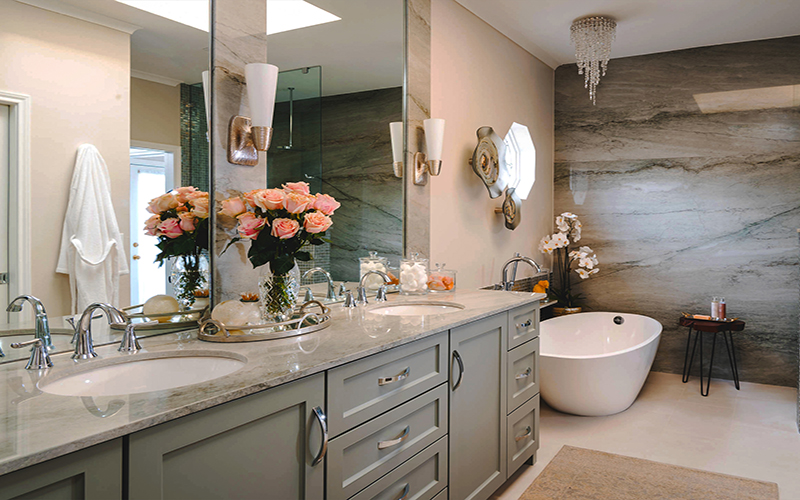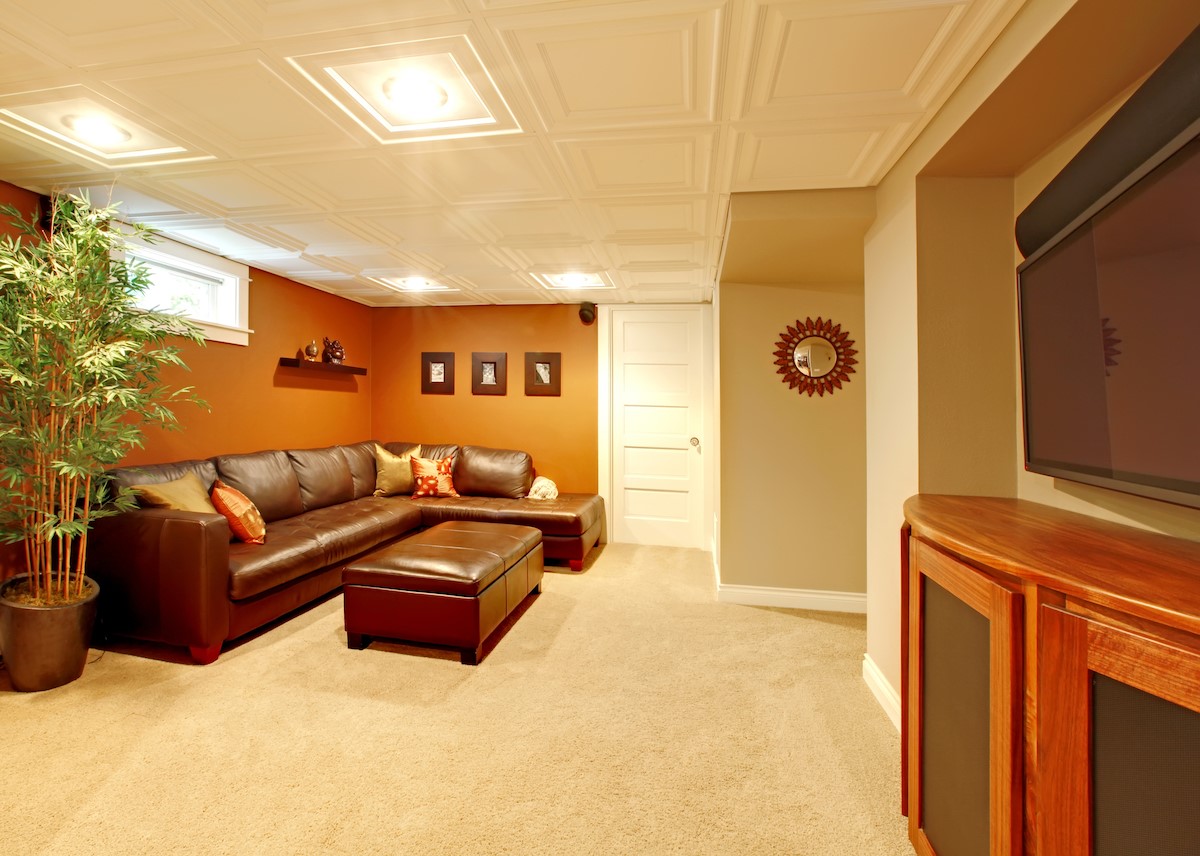DIY Bathroom Renovation in Toronto Vs Professional Bathroom Renovation Services
DIY Bathroom Renovation in Toronto Vs Professional Bathroom Renovation Services
"Your Definitive Guide to DIY Options and Professional Services"
Imagine stepping into a breathtaking bathroom that turns your everyday rituals into indulgent experiences. Are you ready to transform your space into a stunning sanctuary of relaxation and style? Whether you're looking to create a serene space for relaxation or modernize an outdated area, bathroom renovation in Toronto can be the right choice. However, this project can also be daunting, especially if you are still deciding whether to tackle it yourself or hire a professional. Imagine stepping into a breathtaking bathroom that turns your everyday rituals into indulgent experiences. Are you ready to transform your space into a stunning sanctuary of relaxation and style?, provide helpful information, and ensure you are well-informed before starting your renovation.
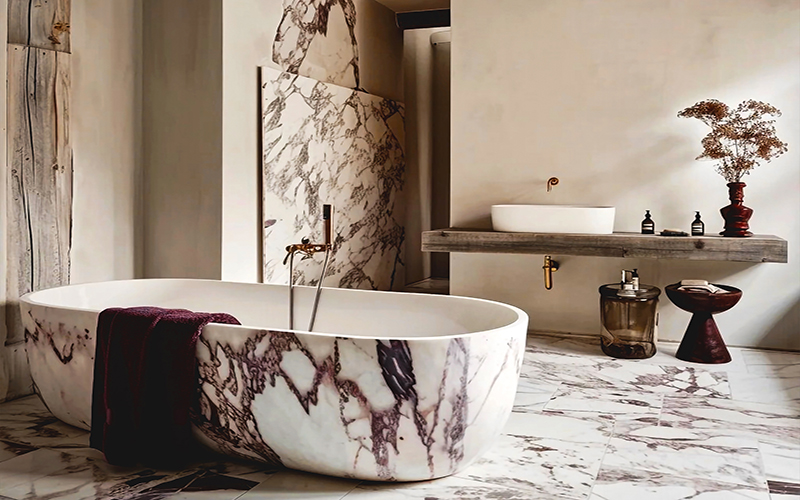
Get ready to explore the pros and cons of DIY projects compared to hiring bathroom remodel contractors near me, and discover essential tips for a successful bathroom renovation.
Understanding the Landscape of Bathroom Renovation in Toronto
The Importance of a Well-Designed Bathroom
A bathroom renovation can significantly enhance your home's aesthetic appeal, increase comfort, and improve functionality. Statistics indicate that a well-executed bathroom remodel can yield an ROI (return on investment) of 60% to 70%, making it an attractive choice for homeowners. Enhancements can significantly boost your property's value, capturing the interest of prospective buyers if you ever choose to sell.
Moreover, a renovated bathroom can enhance your daily living experience. Imagine indulging in a modern soaking tub or enjoying upgraded, elegant fixtures. These factors can contribute to a higher quality of life for you and your family.
Setting a Realistic Budget
The first step in bathroom renovation Toronto project is establishing a budget. Consider all aspects of the renovation, including materials, labor, and potential unexpected costs. A well-defined budget will serve as a roadmap, guiding you through the financial landscape of your project. Typically, bathroom renovations in Toronto can range from $10,000 to $50,000 or more, depending on the scope of work.
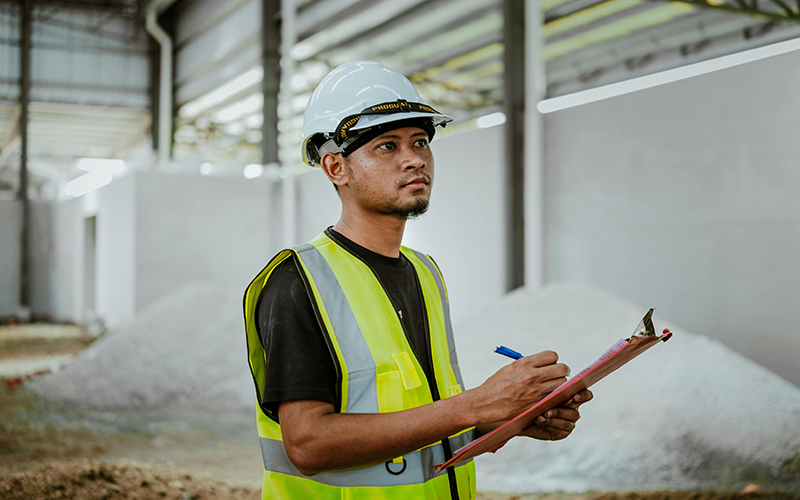
Here's a basic breakdown of costs to consider:
• Labor Costs: Hiring skilled contractors can account for 30% to 50% of your overall budget. It's essential to balance quality and expense.
• Materials: Think about the quality of items you want to use, such as tiles, cabinetry, and fixtures; lower-end materials can cost around $2,000, while high-end finishes may reach $15,000 or more.
• Design Fees: If you employ an interior designer for layout assistance, budget accordingly. Designer fees range from $50 to $200 per hour, or a flat percentage of project costs.
Having a contingency fund of 10% to 20% is wise, allowing you to tackle unforeseen expenses, which are common in remodels.
DIY Bathroom Renovation: Pros and Cons
A DIY bathroom renovation is appealing, especially when considering cost savings. However, this option has its challenges. Here's a breakdown of the benefits and drawbacks.
Advantages of DIY Labor
1. Cost Savings: One significant advantage of a DIY bathroom renovation is the substantial savings on labor costs. You may save hundreds or even thousands of dollars by undertaking the work yourself. According to real estate experts, professional labor fees can constitute a significant part of total project costs.
2. Creative Control: DIY projects allow homeowners to control design elements completely. You can choose every detail, including the style of fixtures, tile choices, colors, and overall aesthetics. This autonomy can lead to a rewarding creative experience.
3. Personal Satisfaction: Few experiences rival the pride of transforming a space with your hands. Completing a DIY project often fosters a sense of accomplishment, bolstering confidence and encouraging further home improvement initiatives.
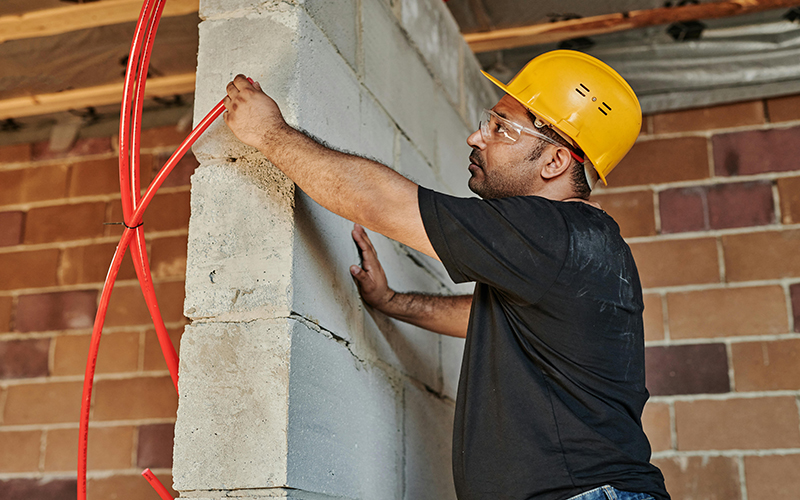
Disadvantages of DIY Labor
1. Potential for Mistakes: With extensive experience, homeowners can avoid making costly errors. Mistakes in plumbing, electrical, or structural modifications can lead to damage that exceeds project budgets. These issues often require further expenses for correction.
2. Time-Consuming: Bathroom renovations often take longer than anticipated, especially when juggling other responsibilities such as work or family. Tasks that contractors could complete in a few days may extend into weeks or months for DIYers.
3. Skill Limitations: Not every homeowner possesses the necessary skills or tools for every remodeling facet—plumbing, electrical work, and waterproofing require specialized knowledge. Without proper expertise, there's a risk of safety hazards and code violations.
Hiring a Professional Contractor for Bathroom Renovation
If the complexities of your bathroom remodel exceed your abilities, hiring a contractor is a wise decision. Let’s dive into the expected advantages and potential drawbacks of hiring a contractor and what to look for when choosing one.
Advantages of Hiring a Contractor
1. Expertise and Experience: Engaging a professional contractor brings a wealth of knowledge. Experienced Toronto bathroom renovators understand local building codes and regulations, ensuring your project meets all legal requirements.
2. Time Efficiency: Professionals can execute projects effectively, saving time. Their established process and access to resources streamline your remodel. Contractors can potentially finish your entire renovation in a fraction of the time it would take you to do it yourself.
3. Quality Assurance: Licensed contractors provide quality guarantees. Professionals often have good relationships with vendors and suppliers, allowing access to premium materials at competitive pricing. Warranties on labor and materials offer additional protection against future issues.
4. Stress Reduction: Handing over the burden of a remodel to qualified professionals alleviates stress, allowing you to retain peace of mind. This can be especially crucial when managing a busy schedule or household.
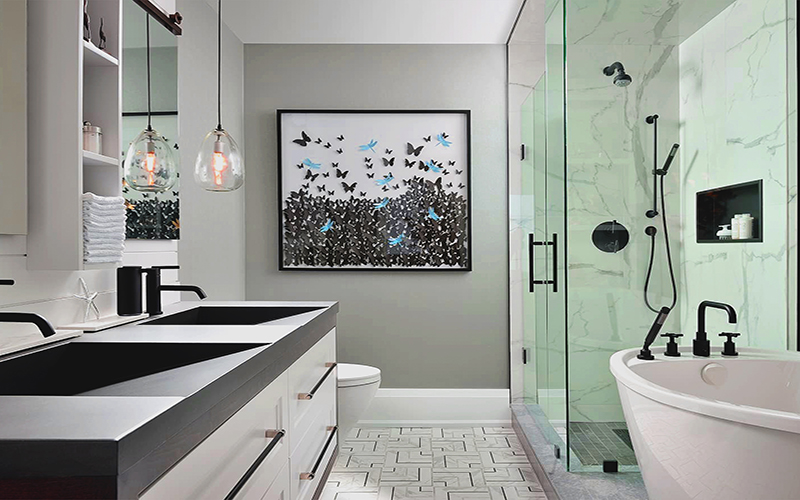
Disadvantages of Hiring a Contractor
1. Higher Upfront Costs: While hiring a contractor protects against costly mistakes, it does come at a higher price. Be sure to communicate your budget with your contractor so they can find solutions that meet your needs.
2. Less Control Over Design: Although you can guide the contractor in terms of aesthetics and preferences, you may need help to assert control over every detail. Clear communication is critical to ensure your vision is realized during the renovation.
3. Potential Disruption: Ongoing remodeling work can create chaos in your home. Contractors may need to disrupt entries or shared bathrooms, causing interruptions in daily life. Planning and coordination can minimize inconveniences.
Finding the Right Bathroom Renovation Contractors
Navigating the contractor selection process involves evaluating potential candidates carefully. Here are the essential steps for ensuring you find the right professional for your remodel:
1. Research Local Contractors
Start by compiling a list of potential bathroom renovation contractors in your area. Online directories, personal recommendations, and social media reviews can help build an informed list.
2. Check Credentials
Verify that contractors hold appropriate licenses and insurance coverage. Inquire about their specific experience with bathroom renovations and ask to see proof of their credentials.
3. Read Reviews and Testimonials
Look into online reviews and ask for references from past clients. You can assess these individuals' satisfaction levels by asking key questions regarding timely completion, quality of work, and adherence to budgets.
4. Get Quotes
Request estimates from multiple contractors. Ensure each forecast provides a detailed breakdown of labor and materials costs, allowing you to make accurate comparisons.
5. Interview Candidates
It would help if you interviewed potential contractors before deciding who to hire. This will help you gauge their communication style and willingness to collaborate. Choosing a contractor that you feel comfortable working with is essential.
6. Review Contracts Carefully
Once you've selected your contractor, review the contract vigilantly. Make sure it covers all aspects of the project, payment terms, timelines, and warranties clearly.
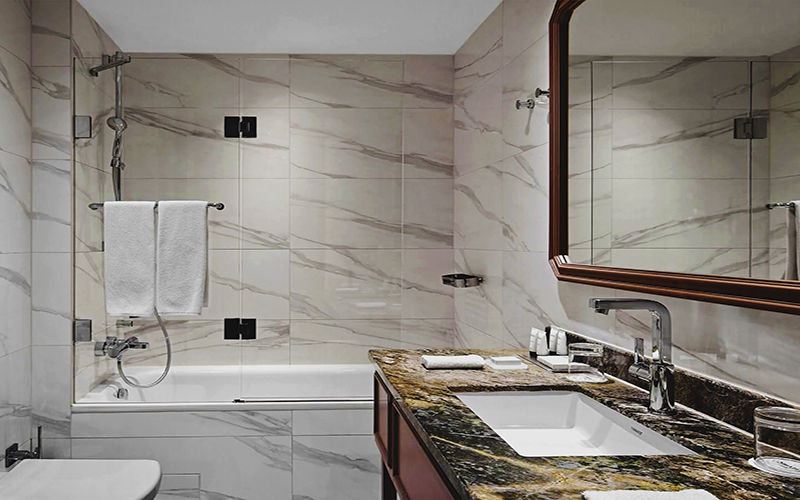
Planning Your Bathroom Renovation: Key Elements to Consider
As you begin the renovation process, several elements should be accounted for to ensure a seamless experience:
1. Establishing a Design Plan
Create a detailed and thorough design plan that has a layout, color schemes, fixtures, tiles, appliances, and finishes. Do some visual research through online platforms like Pinterest, bathroom design magazines, or contractor portfolios to convey your vision.
2. Utility Considerations
Ensure that plumbing, electrical, and ventilation systems meet your specific needs. Waterproofing is imperative in high-moisture areas to avoid potential long-term damage. Hiring a professional can streamline this process to meet safety and code regulations.
3. Choosing the Right Fixtures
Invest in quality fixtures since they can improve the functionality and aesthetics of your bathroom. Opt for water-saving toilets and sustainable faucets that balance style and eco-friendliness.
4. Lighting Solutions
Proper lighting adds elegance to your bathroom while ensuring safety. Consider layered lighting options—ambient, task, and accent—to cover all your illumination needs.
5. Storage Solutions
Bathrooms with adequate storage help reduce clutter and create a more spacious feel. Think about innovative storage solutions, such as vanities with built-in drawers, over-the-toilet shelving, or wall-mounted cabinets.
6. Embrace Natural Elements
To improve air quality consider adding plants and aesthetics in your bathroom. Choose plant types that survive in humid environments, such as ferns or peace lilies, to create a calming oasis.
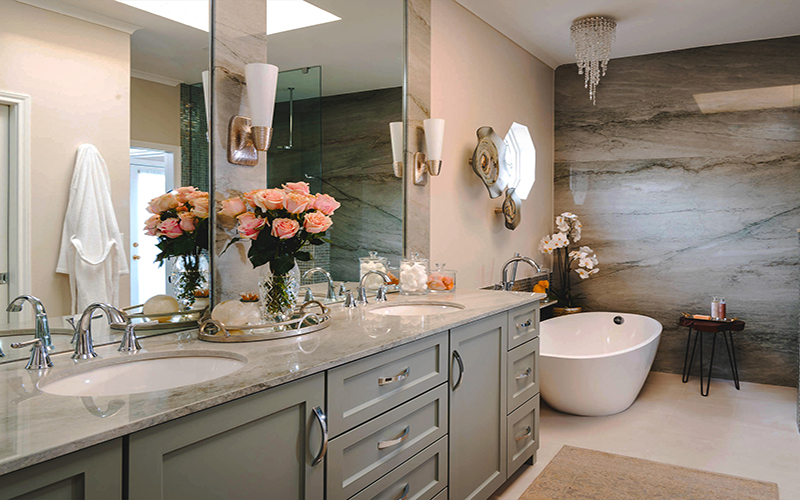
How to Avoid Common Bathroom Renovation Mistakes
While bathroom remodels can yield stunning results, missteps can lead to substantial setbacks. Keep these key tips in mind to avoid common pitfalls:
1. Planning is Paramount
Ensure your renovation has a well-thought-out plan from the start. A lack of a clear design can lead to aesthetic inconsistencies and increased costs.
2. Don't Cut Corners
Skimping on low-quality materials might save money upfront but could produce long-term maintenance headaches. Invest in quality materials that provide durability and longevity.
3. Pay Attention to Layout
Keep flow and functionality in mind when deciding on the placement of fixtures like sinks, toilets, and showers. Poor layouts can lead to a cramped or awkward space; consult a design professional if needed.
4. Maintain Open Communication
Keep communication lines open with your contractor throughout the process. Regular check-ins create transparency, address issues early, and foster collaboration.
5. Stay Within Budget
Develop a budget and commit to adhering to it, allowing for a small buffer for unexpected expenses. Bumping up the budget without an apparent reason might lead to expensive commitments.
The Final Decision: DIY vs. Hiring a Professional
Ultimately, the choice between a DIY bathroom renovation and hiring a professional boils down to personal circumstances, skills, and preferences. Assess your timeline, budget, and available resources alongside the complexity of your renovation.
When to DIY
• You have prior experience in home improvement and renovation projects.
• You are considering minor upgrades and simple tasks like painting or replacing fixtures.
• You possess artistic flair and wish to express your creativity throughout your bathroom design.
When to Hire a Contractor
• Your renovation involves complex plumbing or electrical work.
• You plan to execute extensive changes that require specific expertise, such as altering layouts or moving walls.
• You have tight timelines or other commitments that prevent you from fully engaging in the renovation process.
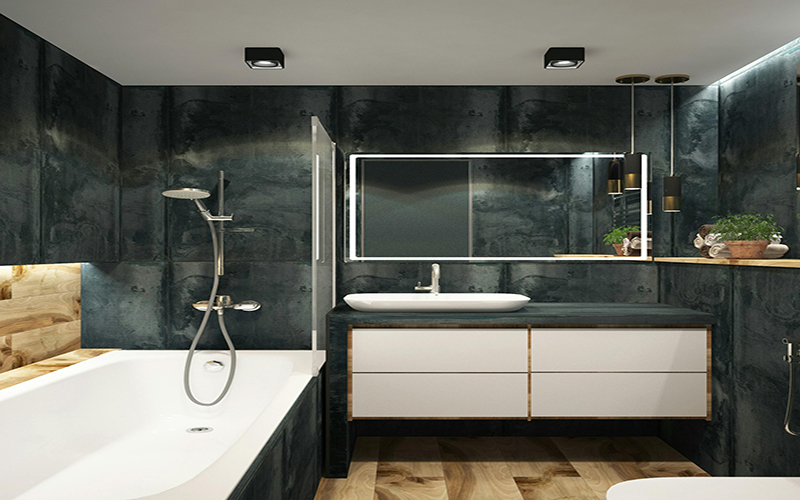
Conclusion: Transform Your Bathroom with Confidence
Navigating your bathroom renovation can be an exhilarating yet complex experience. With clarity on the pros and cons of both DIY projects and hiring a contractor, as well as essential insights for planning, designing, and executing your renovations, you are poised for success.
The choice is ultimately yours. Whether you opt for the personal touch of DIY or the expertise of bathroom renovation contractors in Toronto, the goal is to create a space that enriches your daily life while adding value to your home.
If you are ready to embark on your bathroom renovation journey, reach out for a free consultation. As a licensed and insured contractor in Toronto, we provide tailored and exclusive solutions to meet your unique needs and budget. Let's turn your dreams into reality and create the perfect bathroom tailored just for you!
Start planning today—your ideal bathroom is closer than you think!
1. Ultimate Bathroom Renovation Guide in Toronto
2. Small Bathroom Ideas-Complete Recommendation Guide
3. How Much Value Does a Finished Basement Add in Toronto?
4. Top 20 Basement Renovation Ideas in Toronto

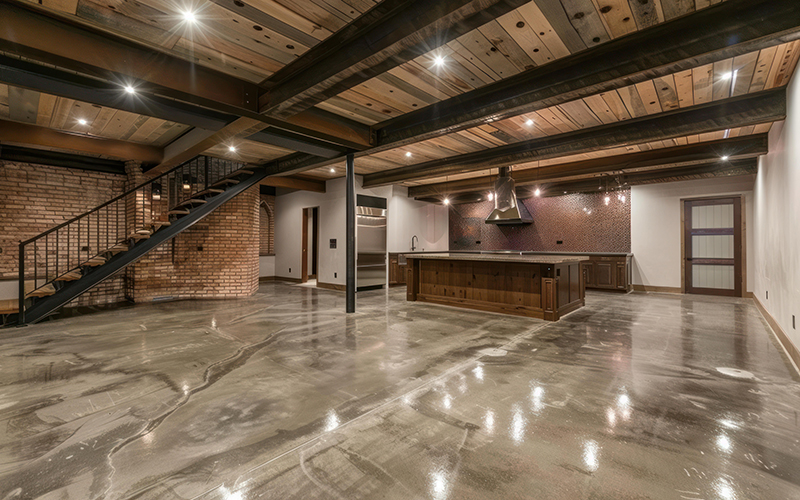
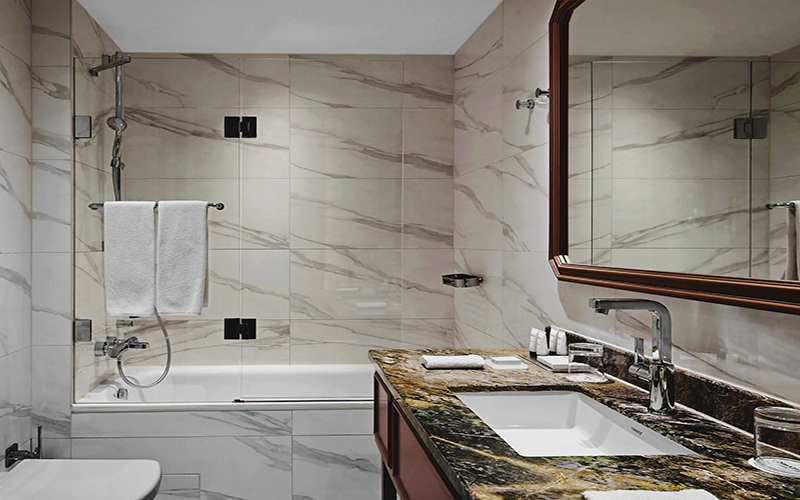

![Basement Renovation Cost in Toronto [Year 2025]](https://asasaconstruction.com/uploads/post/1742002745basement-renovation-cost-in-toronto-2025.png)
